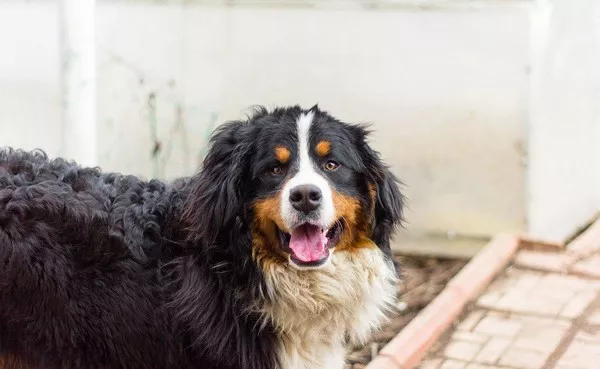Guinea pigs, also known as cavies, are delightful, social creatures that have gained popularity as pets around the world. Known for their gentle disposition and playful nature, they can bring immense joy to their owners. However, a common question among potential and current guinea pig owners is: do guinea pigs need a friend? This article will explore the social needs of guinea pigs, the benefits of companionship, and practical advice on how to ensure your pet leads a happy and fulfilling life.
Understanding Guinea Pig Social Structure
Guinea pigs are social animals by nature. In the wild, they live in herds, which can range from a few individuals to large groups. This social structure plays a crucial role in their behavior, communication, and overall well-being. Being in a group helps guinea pigs feel safe and secure, as there are more eyes to watch for predators. In the wild, they rely on their companions for social interaction, grooming, and support during stressful situations.
Natural Instincts
In their natural habitats, guinea pigs exhibit a range of social behaviors. They communicate through a variety of sounds, body language, and grooming rituals. This social interaction is essential for their mental and emotional health. When kept alone, guinea pigs may experience loneliness, boredom, and even depression, which can lead to health issues.
The Importance of Companionship
Due to their social nature, guinea pigs thrive in environments where they can interact with others. Studies have shown that guinea pigs housed with companions exhibit more natural behaviors, such as foraging, playing, and grooming. These interactions are vital for their mental stimulation and overall happiness.
The Benefits of Having a Companion
Having a companion guinea pig can significantly enhance the quality of life for your pet. Here are some key benefits:
1. Reduced Loneliness
One of the most apparent benefits of having a companion guinea pig is the reduction of loneliness. Alone, a guinea pig may feel isolated and stressed. When kept in pairs or small groups, they can engage in social behaviors that help them feel more secure and content.
2. Increased Activity Levels
Companion guinea pigs tend to be more active. They encourage each other to play, explore, and exercise. This increased activity can help prevent obesity and related health issues, as well as promote overall fitness.
3. Enhanced Socialization Skills
Guinea pigs that are raised or kept with companions develop better social skills. They learn how to interact appropriately with others, which can lead to more harmonious living conditions. Socialized guinea pigs are also generally easier to handle and bond with humans.
4. Stress Reduction
The presence of a companion can help reduce stress levels in guinea pigs. They can comfort each other during stressful situations, such as loud noises or changes in their environment. This mutual support can be crucial in keeping them calm and relaxed.
5. Natural Grooming Behavior
Guinea pigs engage in grooming behaviors with their companions. This not only helps maintain their coats but also strengthens social bonds. Grooming is an essential aspect of their social structure, providing comfort and reassurance to each other.
Choosing the Right Companion
While it’s clear that guinea pigs benefit from having a friend, choosing the right companion is crucial. Here are some considerations to keep in mind:
1. Gender Matters
When introducing guinea pigs to one another, gender plays an important role. Male guinea pigs (boars) can become territorial and aggressive towards each other if not properly socialized. It’s often best to keep them in pairs of one male and one female, or two females together. However, if you choose to keep two males, it’s essential to provide enough space and resources to reduce competition.
2. Age Compatibility
The age of the guinea pigs can also affect their compatibility. Baby guinea pigs are typically more adaptable and can be introduced to older companions. However, introducing an older guinea pig to a younger one may lead to issues if the older one is not socialized or is aggressive.
3. Introductions Should Be Gradual
Introducing guinea pigs to each other should be done gradually to ensure a positive outcome. Start by allowing them to sniff each other through a barrier, such as a cage divider. Once they seem comfortable, you can allow supervised interactions in a neutral space. Always monitor their behavior for signs of aggression or stress.
4. Consider Personality
Each guinea pig has its own personality. Some are more dominant, while others are more submissive. When introducing guinea pigs, consider their personalities and choose companions that complement each other. A shy guinea pig may do well with a more outgoing one, while two dominant personalities may lead to conflicts.
Signs of a Successful Bond
Once you have introduced your guinea pigs, it’s important to observe their interactions. Here are some signs that they are successfully bonding:
1. Grooming
If your guinea pigs groom each other, this is a strong indicator of a successful bond. Grooming is a sign of affection and trust, and it helps strengthen their relationship.
2. Playfulness
Guinea pigs that are comfortable with each other will often engage in play. This can include chasing, rumbling, and even popcorn jumping, where they leap into the air in excitement.
3. Sleeping Together
When guinea pigs feel safe with each other, they may choose to sleep next to one another. This close contact is a clear sign of trust and comfort.
4. Sharing Resources
Successful pairs of guinea pigs will often share food, water, and space without exhibiting aggressive behavior. If they can eat together peacefully, it’s a good sign of a healthy relationship.
Challenges of Companionship
While there are many benefits to having a companion guinea pig, there can also be challenges. Here are some potential issues you may encounter:
1. Aggression
Aggression can occur during introductions, especially if the guinea pigs feel threatened or if there is competition for resources. If you notice any signs of aggression, such as biting, chasing, or vocalizations, it’s essential to separate them immediately and try reintroducing them later.
2. Space Limitations
Guinea pigs require sufficient space to thrive, especially when kept in pairs or groups. If your living situation limits the space available for them, consider whether you can provide an environment that meets their needs. Overcrowding can lead to stress and aggressive behavior.
3. Health Issues
When introducing new guinea pigs, it’s crucial to ensure that they are healthy. Introducing an ill guinea pig to a healthy one can spread diseases. Always have new pets examined by a veterinarian before introduction.
4. Resource Competition
In a multi-guinea pig household, competition for food, water, and space can occur. To mitigate this, provide multiple feeding stations and hideaways, ensuring that each guinea pig has access to its own resources.
What to Do If Your Guinea Pig Is Alone
If you find yourself with a single guinea pig, it’s essential to assess its social needs. Here are some steps you can take:
1. Assess the Situation
Evaluate your guinea pig’s behavior. Does it seem lonely? Is it engaging in destructive behaviors or exhibiting signs of stress? Understanding its needs will help you decide the best course of action.
2. Consider Getting a Companion
If you have the resources and space, consider adopting a second guinea pig. Ensure that you follow the guidelines for introductions and choose a compatible companion.
3. Increase Interaction
If getting a companion is not possible at the moment, increase your interaction with your guinea pig. Spend time playing, grooming, and talking to it. This will help reduce feelings of loneliness.
4. Provide Enrichment
Enhance your guinea pig’s environment with toys, tunnels, and activities that encourage exploration and play. This can help keep it engaged and entertained.
5. Monitor Health
Keep a close eye on your guinea pig’s health. Changes in behavior, eating habits, or grooming can indicate stress or illness. Regular veterinary check-ups are essential to ensure your pet’s well-being.
Conclusion
In summary, guinea pigs are social animals that thrive when they have companionship. The benefits of having a friend far outweigh the challenges, and providing a companion can lead to a happier and healthier life for your guinea pig. If you are considering adopting a guinea pig, be sure to take their social needs into account and provide them with the opportunity to interact with others. Whether it’s through a buddy or increased human interaction, ensuring your guinea pig feels loved and connected is key to their happiness.
By understanding their social behavior and providing appropriate companionship, you can create a fulfilling environment for your guinea pig, allowing them to express their natural instincts and live a joyful life.
Related Topics:
























